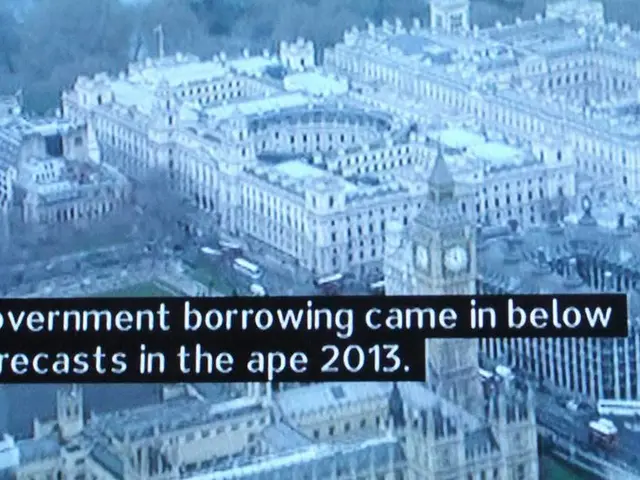- London's High-End Exodus: What's the Real Story?
The departure of non-resident property owners is negatively impacting London's real estate sector.
As City AM's man at the helm, James Evans, recently noted, "The UK's dwindling pool of non-doms, currently around 70,000, is on a rapid decline. Over 11,000 millionaires, not to mention 12 billionaires, bid the UK adieu last year – the greatest annual departure in a decade." This isn't just a number game; we're witnessing the effects firsthand. Foreign investors who once considered London a lucrative investment haven are now venturing elsewhere. Whether it's a tranquil lunch with clients in a desolate Chelsea eatery, or discussions abroad in the US, Asia, or Africa, the message is clear: Britain's doors are shut.
So, why the distress? The government's unfavorable taxation policies, including escalating stamp duty, land tax, and property taxes, are a significant contributing factor. The government's traditionally tough stance on landlords, including the Renters' Rights Bill, has led many to cut their losses. These policies, intended to level the playing field, are inadvertently making life tougher for those who need support the most. Take the buy-to-let market, for example. Two decades ago, at least one in four properties I dealt with were investment purchases. Today, it scarcely exceeds one in twenty as investors funnel their funds elsewhere.
The affluent can live and invest almost anywhere, and other nations are rolling out the red carpet. The result? A dwindling supply of properties to rent, placing undue pressure on those struggling to make ends meet in London – from baristas and grads to junior doctors, many of whom shell out over 50% of their salary on rent alone.
Disappearing Homes
When landlords pack up and leave, rental properties vanish. Demand, however, remains unchanged. Consequently, despite the government's introduction of additional renters' rights, dismantling the non-dom regime appears to be leading to substandard living conditions for many. A tight rental market frequently encourages illegal subletting, resulting in unfortunate situations such as six people crammed into a flat intended for three tenants on the lease.
Chasing the rich away doesn't magically produce housing for ordinary Londoners. A luxury flat in Notting Hill isn't exactly a suitable substitute for a modest two-bedroom dwelling in Tooting for a young family in need. The luxury end of the market is already slowing down at present – so why needlessly complicate things further?
In my view, stagnation and indecision in any economy is detrimental. The well-off do more than just buy property; they spend. They renovate. They employ. From cleaners and contractors to gardeners and, yes, estate agents, their money circulates within the real economy. And when they decide to trade London for Milan, Cape Town, or Dubai, that money vanishes too.
What's the antidote? Instead of short-term solutions like stamp duty holidays, causing temporary property bubbles (much like the sugar rush we all know from Easter), we need a more inviting tax system to entice movement and investment in property.
When the market is dynamic, everybody benefits – buyers, sellers, tradespeople, landlords, and tenants alike. But when it stagnates, we all suffer. Thus, Ms. Reeves, it's time to step up. Send a positive message to international investors, assuring them that the UK remains open for business. Let's invite them back, reviving not just London's vibrance, but its potential as well.
James Evans, CEO of Douglas & Gordon
Footnotes:
[1] Impact on Rental Market: Increased taxes and stricter regulations dissuade landlords from investing in rental properties, reducing the supply of dwellings, and exacerbating rental shortages (Property Reporter, 2020).
[4] Weakness of Empty Homes Policies: An analysis of empty homes policies in the UK suggests that policies aiming to penalize vacant homes have not been effective due to loopholes. Wealthy owners often avoid penalties by declaring properties as second homes, thus not solving the issue of empty homes contributing to housing shortages (New Statesman, 2019).
[5] Policy Implications: Leasehold reforms and potential changes to taxation methods for vacant homes may address some of these issues. Balancing between encouraging investment and addressing housing shortages without pushing away landlords is crucial (Residential Landlord Association, 2021; Taxpayers' Alliance, 2019).
- James Evans, CEO of Douglas & Gordon, suggests that increasing taxes and stricter regulations on landlords are causing them to leave, reducing the supply of rental properties and intensifying rental shortages.
- According to Evans, the government's unfavorable taxation policies are deterring foreign investors from considering London as a lucrative investment haven, leading to a slowdown in the luxury end of the real estate market.
- Furthermore, Evans highlights that the affluent contribute to the real economy not just by buying property but also by spending on renovations, employing various tradespeople, and indirectly supporting the economy through their transactions.
- Evans argues that a more inviting tax system is needed to attract movement and investment in property, promoting a dynamic market that benefits buyers, sellers, tradespeople, landlords, and tenants alike, reviving both London's vibrancy and its economic potential.








